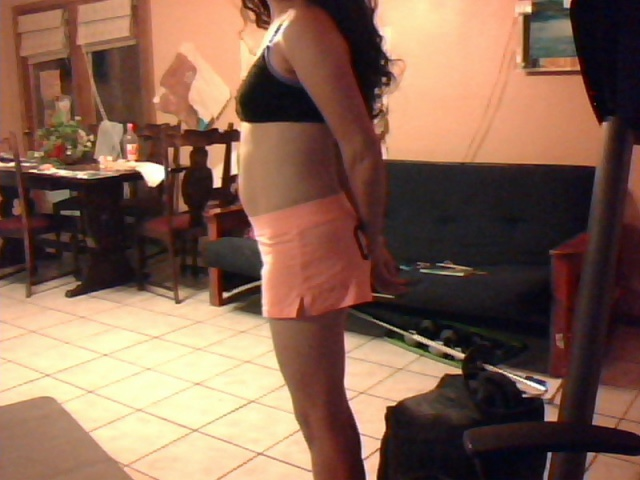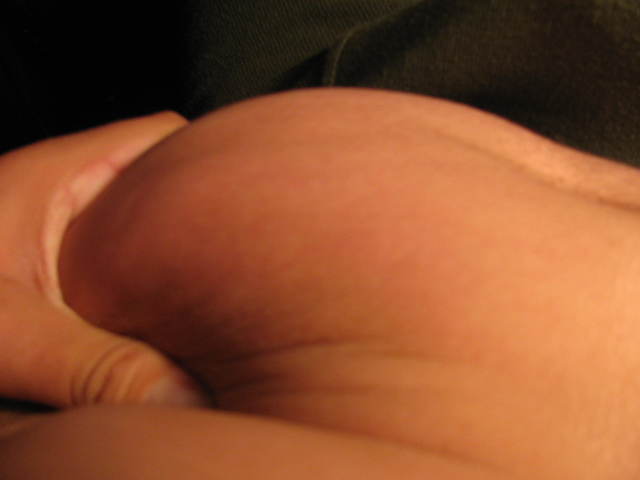Running, eating well, not losing weight!
Question
I run 11-18 miles a week. This week I will hit 20. I run a min. of two miles at a time, usually 3, weekend runs are longer. I run in the morning before work and I run 5 days a week.
I eat very well. Lots of lean chicken (no skin) light cheeses, whole wheat pasta. But ENOUGH. I allow myself the occasional bite sized chocolate bar, etc. I am doing this SO by the book. Mostly I just love running. It is a thrill, a passion. I run 5ks, 10ks and am training for a half marathon. I am slow because I am overweight but I am a good runner, strong and healthy. I do have a lot of muscle as well as being overweight, but I could stand to lose 30-40 pounds. I have a digital scale--the kind that alleges to measure body fat. I have been weighing myself for the couple weeks or so again and it is NOT BUDGING. Even though this week I stepped my running up to 20 miles. I expected to lose a pound or two as I even cut my calories--still I am healthy, maybe 1500 calories. I drink lots of water. I mean, seriously I am not leaving anything out. I even take multi vitamins and limits refined sugars, etc. I have enough carbs for being a runner and don't believe in fad diets. but it is no wonder to me why people take disgusting diet pills if all I am doing is not causing weight loss. Yes, I am a bit firmer so I realized I might build muscle but a pound of muscle and a pound of fat still weigh a POUND. I am SOOOOO discouraged and if something doesn't kick in soon I am the type who is determined. I am GOING To run no matter what. And I want to do it healthy. What is wrong with me? (Oh yeah, my recent health exam was all normal. BP is on low end of normal, cholesterol good, etc). I f I were thin people would think I was the picture of health.
Please help me understand why I am not losing weight--oh yeah, I have been intensely running for over a month, maybe six weeks, and running of and one never that for the last year so it has been long enough that at least 2-4 pounds should be gone. I am losing heart quickly. It is terribly discouraging when you do something balanced and healthy and NOTHING happens. And I also forgot to mention I work on the 5th floor and take 76 stairs up and down almost every day at least twice.
Thank you for your help.
Hi Susan,
I can certainly understand why you're so frustrated. You have been working really hard and it's reasonable to expect to see some results from everything you've been doing.
I don't have a cut-and-dried answer for why you're not seeing any weight loss, but I can just throw out a few thoughts and suggestions:
-Firstly, if you're only eating about 1500 calories, that may not be enough! Even though it seems counterintuitive, not eating enough can actually make it harder to lose weight, as your metabolism slows down to hang onto what you *are* feeding your body. You don't say how old you are, but the average 30 yr old, active woman with a Body Mass Index of 25 (highest weight in the "healthy" range) needs about 2500 calories a day to maintain weight, therefore about 2000 per day for a weight loss of 1 lb per week.
-You say your weight isn't changing, but what about your percentage body fat, or your body measurements (e.g. waist, hip, chest)? These may be more accurate for assessing changes in body fat than measuring your weight. You are right that muscle weighs more than fat, but it takes up less space (and obviously the more muscle you have, the lower your percentage body fat).
-I would highly recommend adding some strength training to your exercise routine. Two 30 minute sessions per week is enough to see benefits. Strength training will increase your lean muscle mass, increasing the number of calories you're burning, even at rest. It is a very effective way to help promote fat loss! You can do a simple yet effective routine at home using dumbbells and a stability ball. If you need some guidance, _Sculpt Your Body with Balls and Bands_ by Denise Austin and _Weight Training for Dummies_ by Suzanne Schlosberg and Liz Neporent are good resources (both should be available at your local library).
-Most importantly, don't give up! Regardless of the changes you see on the scale, you are doing very healthy things for your body. I know it's frustrating not to see the changes you want, but I'm sure you've probably noticed that you have more energy, feel less stressed, and sleep better because of your healthy lifestyle. Try to focus on these other benefits for a while, and you may find the weight magically starts to take care of itself :)
Here are a few of my other weight loss tips:
1. Think 揾ealthy food? not calories!
Counting calories is not an effective long term strategy for promoting weight loss or maintaining a healthy weight. Instead, focus on choosing foods that are low on processing and high in nutrients such as vitamins, minerals, and dietary fibre most of the time.
2. Get Enough Calcium!
Scientific research has demonstrated that dietary calcium plays a role in weight control. Calcium helps to regular fat storage and promotes fat loss in the abdominal area.
Eating about 1000 mg of calcium per day (from food, not supplements), equates to the burning of about 100 more calories of body fat per day (or about 10 pounds of fat per year!)
Choose 8 servings from the following list to meet your daily goal:
?cup calcium fortified orange juice
?cup fortified tomato juice
1 cup cooked or 2 cups raw greens (e.g. kale, collard greens, broccoli)
?cup cow's milk, soy milk, or yogurt
?oz cheese
?cup calcium-set tofu
?cup almonds
2 tbsp almond butter or sesame tahini
?cup soy nuts
1 oz calcium-fortified breakfast cereal
Although 8 servings sounds like a lot, many of the serving sizes are quite small. For example, if you include ?cup of fortified orange juice as well as ?cup milk on cereal at breakfast, 1.5 oz of cheese on your sandwich at lunch, 1 cup of milk with supper, and ?cup of yogurt plus ?cup of almonds for a snack, you've gotten in 8 servings!
3. Eat breakfast
About 40 percent of adults skip breakfast at least 4 times per week. Don't be one of them! Research has demonstrated that breakfast skippers weigh more than breakfast eaters. People who eat breakfast actually consume fewer calories by the end of the day than breakfast skippers. If you are pressed for time in the morning, or don't feel up to eating right after you get up, pack a portable breakfast (e.g. muffin or cereal bar, fruit cup or fresh fruit, yogurt) and nibble throughout the morning.
4. Eat the RIGHT kind of carbs
Yes, carbs have been elevated to dietary demon status lately - but they shouldn't be. Your body needs carbohydrates to function properly. The key is to choose the right types of carbs. Steer clear of overprocessed foods like white bread, and increase your intake of healthy whole grains, fruits, and vegetables. One key benefit of healthy carbs is that they contain fibre, which helps you to feel full, so you don't overeat.
Good choices include:
Breads and baked goods made with whole grain flours, such as whole wheat, oats, or rye
Whole grain breakfast cereals, like Raisin Bran, Corn Bran, or Cheerios
Brown rice, couscous, barley, kamut, or millet
Fresh, frozen or canned fruits or vegetables
Legumes such as lentils, split peas, chickpeas, black beans, or baked beans
5. Beware of "Snackwell's Syndrome"
Due to the focus on low fat diets, many people have forgotten that calories count too! Just because a food is low in fat does not mean it is low in calories (often fat is replaced with more sugar). So even when consuming lower-fat versions of foods, continue to monitor your portion sizes!
6. Include adequate amounts of protein and fat
While it is not necessary (or even healthful) to consume a high-protein diet to promote weight loss, including adequate protein in your diet is important. Consuming protein foods at each meal will help you to feel satisfied for longer. Small amounts of fat can have the same effect ?just choose healthy fats like olive or canola oil, or the fat naturally present in foods such as nuts or avocadoes.
7. Avoid 搎uick fixes?br>
Although potions and pills may promise miracles, they will not deliver lasting results. You did not gain weight overnight, and you can't take it off overnight either! Studies show that people who lose weight quickly are likely to gain it all back. Permanent weight loss takes place much more slowly. Be patient and you will achieve your goal.
8. Set realistic goals
A safe rate of weight loss is 0.5 to 2 lbs per week. So, once you have determined your target weight, set a realistic time frame to get to your goal weight.
9. Get moving!
Regular physical activity is absolutely essential to promoting and maintaining weight loss. Much research has shown that individuals who commit to regular exercise are the ones most likely to maintain weight loss.
If the thought of physical activity intimidates you or makes you cringe, a great way to start is by purchasing a pedometer and using it daily.
A study of women aged 19-71 who walked 10,000 steps per day for 8 weeks, found that nearly half of the women reported losing weight during the 8 week period.
A pedometer increases your awareness of your daily activity level. You can purchase a basic one for about ten dollars. Start out by keeping track of how many steps you are currently taking per day, then aim to add 1000-2000 steps per day until you hit 10,000. This is the equivalent of about 8 km (5 miles). Squeeze in more steps by taking 5 to 10 minute walking breaks several times throughout the day, taking the stairs instead of the elevator, and walking to destinations less than 1 km away.
10. Practice 揺xtreme self care?br>
Taking good care of yourself is crucial to both your weight loss success and your overall ability to live a satisfying life. Make sure to get enough sleep, and treat yourself to what your body and spirit needs ?a long, hot bath, a massage, or an evening curled up with a good book and a hot cup of tea. You are worth it!
Hope that helps!
Karen
www.getfitwithkaren.com
- Prev:sugar in fruitbased diet
- Next:health & weight loss
Related Articles
-
Baby food and iron
QuestionMy baby girl is 5 months old. I want to make her food mys
-
Self Esteem and Fat
QuestionI have horrible self esteem because of my body. I am a 34
-
last 10 pounds
QuestionI am an eighteen year old girl and I am 58 tall and I wei
-
diet plan
QuestionWithout paying someone to create a diet plan for me how c
-
healthy weight
QuestionIs it true that theres a certain weight at which the body
-
unpleasant Breast Smell
QuestionI have noticed over the past few months,that underneath m




